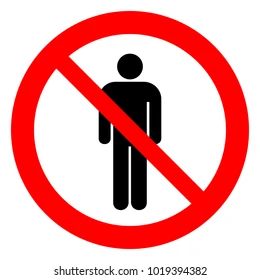The Courage To Be Disliked - A Look at the Insightful Philosophical Novel
The Courage to Be Disliked is a great novel written by Ichiro Kishimi and Fumitake Koga. It follows the conversations between a philosopher and a youth over five nights, as there philosopher, using Adlerian psychology, helps his young student understand that life is simple and happiness can be achieved by anyone. During each night, they talk about different, yet quite related, topics. I will admit that I have only read about the first three nights, but because there isn't really a plotline, every one of their discussions is extremely insightful and information-heavy. I think that it works for this novel.
During the first night, the philosopher teaches his student about denial of trauma. He says that past experiences only determine the self through the meaning we give them, and we are controlled neither by emotion nor the past. The philosopher then talks about how people want to change, but are afraid to and lack the courage you need to change and become happy. He also talks in the first dialogue about how it is the self that makes one's life complicated and too difficult to live happily. The present you, not past experiences, determine how you live your life.
In the second night, the philosopher talks with the student about how Adler believes that all problems are interpersonal relationship problems. He talks about what one often finds shortcomings to justify not entering interpersonal relationships so that you aren't hurt in them. Next, he teaches him about feelings of inferiority, and how they are simply subjective. For example, you may view your short height as inferior, but that is only what mean you attribute to that height. He talks about how inferiority complexes, which are different from feelings of inferiority, are just excuses for not moving forward, and these can result in superiority complexes, or the need to act as if you are superior even though at the base lies an intense feeling of inferiority. It then talks about how life is not a competition, and we should compare ourselves with our ideal self, not others.
In the third night, the philosopher discusses discarding other people's tasks. He says that you should not live to satisfy others' expectations, and should not seek recognition from other people, as that is simply living another person's life. He talks about separating tasks, and tells the student that you should complete your own tasks in life, and not others'. For example, somebody disliking you is their task, not yours, and you should leave that to them. He teaches that real freedom comes from having the courage to be disliked.
The book thus far is quite captivating and has a lot to offer for anybody in day-to-day life, and teaches a new perspective on the world and life. I would highly recommend this book for a person who loves learning about philosophy. If you want a book with action, story, or plot, this book probably isn't for you. It is a very information-heavy book, so I highly recommend reading it multiple times to really understand the ideas, but the book is relatively easy to understand, and all ideas proposed are thoroughly explained and debated. I hope you learn a lot from this book if you choose to read it!
- Quintus Kreiger


Comments
Post a Comment